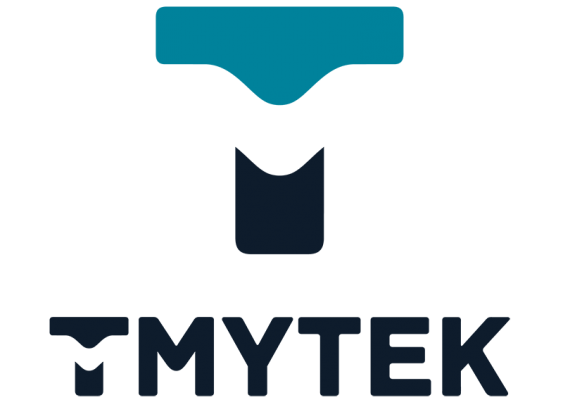Jointly organized by WICE, N2Women, and WIE
Monday 9 June 2025
Room: 516 E, Level 5 (Palais)
Workshop Organizers: Afsoon Alidadi Shamsabadi(Carleton University), Kuljeet Kaur (ETS Montreal), Monireh Vamegh (Huawei), Irem Bor Yaliniz (Huawei), Dola Saha University at Albany), Eirini Eleni Tsiropoulou (Arizona State University), Toktam Mahmoodi (King’s College London)
| 8:30 - 9:00 AM |
Opening Remark WICE chair: Toktam Mahmoodi N2Women chair(s): Dola Saha and Eirini Eleni Tsiropoulou |
| 9:00-10:00 AM |
Panel 1: From Glass Ceilings to Glass Bridges -- Improving Leadership in Tech Organisers: Dola Saha, University at Albany, US Eirini Eleni Tsiropoulou, Arizona State University, US Moderator: Panelists: Sandra Cespedes, Concordia University, Canada Soumaya Cherkaoui, Polytechnique Montreal, Canada Maria Domingues, Khalifa University, UAE Hakimeh Purmedhi, Ericsson, Canada |
| 10:00 - 10:30 AM | Coffee Break |
| 10:30 - 12:30 PM |
Female Leadership in Tech research & industry Dr. Rochelle Carr, Path Forward Empowerment |
| 12:30 - 2:00 PM | Lunch Break |
| 2:00 - 2:10 PM | WICE award 2024, and travel grant awards |
| 2:10 - 3:30 PM |
Panel 2: Research & Industry Challenges of AI adoption in 6G Organisers: Afsoon Alidadi Shamsabadi, Carleton University Monireh Vamegh, Senior Wireless Research Engineer, Huawei Moderator: Israat Haque, Dalhousie University Panelists: Veena Rawat, GSMA, US |
| 3:30 - 4:00 PM | Coffee Break |
| 4:00 - 6:30 PM |
Mentoring Program (Joint with YP and ComSoc Mentoring Subcommittee) Organizers: Newman Wilson, Toktam Mahmoodi, Virginia Pollini, Eirni Eleni Tsiropoulou Invited Mentors: TBC |
| 6:00 - 8:00 PM | Drink Reception |
Panel 1 - From Glass Ceilings to Glass Bridges -- Improving Leadership in Tech
This panel, From Glass Ceilings to Glass Bridges – Improving Leadership in Tech, brings together distinguished leaders to discuss the barriers women encounter in reaching executive positions and the strategies that have enabled them to break through. Panelists will explore actionable approaches for career growth, including mentorship, sponsorship, and skill-building, while also examining the critical role organizations play in fostering inclusive workplaces. Through inspiring success stories and key lessons learned, this discussion aims to empower the next generation of women leaders and drive meaningful change toward greater gender diversity in tech.
Organizers: Dola Saha (University of Albany, US), Eirini Eleni Tsiropoulou (Arizona State University)
Moderator: Mathini Sellathurai, Heriot-Watt University, UK.
 |
 |
 |
Speakers:

Dr. Sandra Céspedes received her B.Eng. (2003) and Specialization (2007) degrees in Telematics Engineering and Management of Information Systems from Universidad Icesi, Colombia, and her Ph.D. (2012) in Electrical and Computer Engineering from the University of Waterloo, Canada. Since 2022, she has been an Assistant Professor in the Department of Computer Science & Software Engineering at Concordia University, Montreal, Canada. Previously, from 2014 to 2021, she was an Associate Professor in the Department of Electrical Engineering at Universidad de Chile, Santiago, Chile. Dr. Céspedes is an Associate Researcher with the Advanced Center of Electrical and Electronic Engineering (AC3E) in Chile and an IEEE Senior Member. Her research focuses on the challenges of mobile networking solutions, protocol design for the Internet of Things and constrained networks, satellite IoT and deep space communications, connected vehicles, and cyber-physical systems. She has served as an Associate Editor and TPC for several IEEE journals and conferences, including the IEEE Internet of Things Journal, IEEE Vehicular Technology Magazine, IEEE VNC, IEEE Globecom, and IEEE PMRIC, among others. Dr. Céspedes is an active participant and a co-author of several Internet standards at the Internet Engineering Task Force.

Soumaya Cherkaoui is a Full Professor at Department of Computer and Software Engineering at Polytechnique Montréal, Canada. Her research interests are in wireless networks. She specializes in the convergence of machine learning and communication networks, as well as the application of quantum technologies in future communication systems. Before joining academia as a professor in 1999, she worked in the industry as a project leader on aerospace-related projects. Pr. Cherkaoui has published over 200 research papers in renowned journals and conferences. She has served as a guest editor and an editorial board member for several prestigious journals, including IEEE Journal on Selected Areas in Communications (JSAC), IEEE Network, IEEE Systems, and Computer Networks (Wiley and Elsevier). Her research has led to successful technology transfers and has been recognized with multiple accolades, including best paper awards—notably at the IEEE Communications Society's flagship conference, IEEE ICC 2017, with recent awards at ICCSPA 2024, GIIS 2025, and IEEE LCN 2024. She has played key leadership roles in major conferences, serving as the Technical Co-Chair of IEEE ICC 2025, General Chair of IEEE LCN 2019, Symposium Co-Chair for IEEE ICC 2018, IEEE Globecom 2018, IEEE Globecom 2015, and IEEE ICC 2014. Additionally, she was Chair of the IEEE Communications Society’s Technical Committee on IoT, Ad Hoc, and Sensor Networks (2020–2021), the second-largest technical committee within IEEE Communications Society. Dr. Cherkaoui is the recipient of the Mirela Notere Award and the IEEE Bio-Inspired Computing STC Leadership Award. She was featured in the 2023 N2Women Top 10 list for Computer Networking and Communications and recognized as a "Star" in Networking and Communications by N2Women in 2023. She is also an IEEE Communications Society Distinguished Lecturer.

M. Fátima Domingues, currently an Assistant Professor at the Biomedical Engineering and Biotechnology Department at Khalifa University, Abu Dhabi UAE and a Research Collaborator at Instituto de Telecomunicações – Aveiro., received her PhD in Physics Engineering from University of Aveiro, Portugal, in December 2014. She is the lead researcher in biomedical applied photonics at the BMEBD-KU, with +130 co-authored peer-reviewed publications in this field. In 2024 Dr. Domingues was listed in the top 2% of the most-cited scientists according to Stanford University and Elsevier rankings. She has been part of the organizing committee of various international conferences and scientific meetings, including IEEE HealthCom 2022 and Healthcom 2025, IEEE WF-IoT2024, 2025 and 2026, IEEE ICC 2024 and Globecom 2025. She is an IEEE Senior Member and an active member of several IEEE Societies. Since January 2022, she is the Secretary for the IEEE EMBS Portuguese Chapter.

Hakimeh Purmedhi is a project lead and principal data scientist at Ericsson, where leads innovative AI/ML solutions for future wireless communication networks. She received her Ph.D. degree in electrical engineering from the Department of Electrical and Computer Engineering, University of Alberta, Edmonton, AB, Canada. After completing a postdoc in AI and image processing at the Radiology Department, University of Alberta, she co-founded Corowave, a start-up to develop resilient to movement, non-contact and continuous vital signs monitoring platform and sensors solution, leveraging radiofrequency technology and machine learning. Before joining Ericsson, she was with Microsoft Research (MSR) as a research engineer, and collaborated on developments of TextWorld project, which is a testbed for reinforcement learning research projects. Her research focus is basically on the intersection of wireless communication (5G and beyond including resource management and edge computing), AI solutions (such as LLMs, GenAI, online learning, federated learning, reinforcement learning, deep learning), semantic communication, optimization, and biotech.
Panel 2 – Research & Industry Challenges of AI adoption in 6G
As 5G networks continue to be deployed, researchers worldwide are actively exploring 6G wireless networks, driven by potential use cases, emerging requirements, and unresolved challenges. AI has emerged as a powerful tool for designing efficient algorithms in wireless networks while also reducing the complexity of traditional approaches. However, despite its advantages, AI in 6G faces various challenges and limitations that must be addressed. This panel discussion will explore the potential roles of AI in 6G wireless networks, its advantages over traditional methods, and the key challenges and limitations that come with its adoption.
Organizers: Afsoon Alidadi Shamsabadi, Carleton University, Dr Monireh Vamegh, Huawei
Moderator: Prof. Israat Haque, Dalhousie University
 |
 |
 |
Speakers:

Dr. Veena Rawat is President of Expert Strategies International, a US-based consulting firm, advising national and international organizations on telecommunication policies and regulations. She is consulting since 2014 for GSMA as Senior Spectrum Advisor. In 2014 she was awarded ‘Officer of the Order of Canada’ for her “contributions to telecommunications engineering and for leadership in establishing the global regulatory framework for radio spectrum management”. Dr. Rawat received PhD in Electrical Engineering from Queen’s University, Canada in 1973. She spent 28 years within the Canadian Government where she held executive positions in managing radio frequency spectrum. Between 2011-14, Dr. Rawat worked as Vice President and Ambassador to ITU for BlackBerry. During 2004-11, she was President of Communications Research Centre (CRC) of Canada. She had many trailblazer ‘firsts’ and has a long list of national and international awards. She is a Fellow of WWRF and the Canadian Academy of Engineering (CAE), and a member of the External Advisory Board of Spectrum X of NSF, their innovation center for spectrum.

Dr Fatemeh Afghah is an Associate Professor with the Electrical and Computer Engineering Department at Clemson University and the director of the Intelligent Systems and Wireless Networking (IS-WiN) Laboratory. Prior to joining Clemson University, she was an Associate Professor with the School of Informatics, Computing and Cyber Systems, at Northern Arizona University. Her research interests include wireless communication networks, decision-making in multi-agent systems, UAV networks, security, and artificial intelligence in healthcare. Her recent project involves autonomous decision-making in uncertain environments, using autonomous vehicles for disaster management and IoT security. Her research has been continuously supported by NSF, AFRL, AFOSR, NASA and NIH. She is the recipient of several awards including the Air Force Office of Scientific Research Young Investigator Award in 2019, NSF CAREER Award in 2020, NAU's Most Promising New Scholar Award in 2020, NSF CISE Research Initiation Initiative (CRII) Award in 2017 and Best Paper Award at INFOCOM WiSRAN in 2022.

Dr Lina Bariah received the Ph.D. degree in communications engineering from Khalifa University, Abu Dhabi, UAE, in 2018. She was a Visiting Researcher with the Department of Systems and Computer Engineering, Carleton University, Ottawa, ON, Canada, in 2019, and an aOiliate research fellow, James Watt School of Engineering, University of Glasgow, UK. She was a Senior Researcher at the technology Innovation institute, and a Lead AI Scientist at Open Innovation AI. She is currently an Adjunct Professor at Khalifa University, and an Adjunct Research Professor, Western University, Canada. Dr. Bariah serves as the Industry Chair for GenAINet ETI. Dr. Bariah is a senior member of the IEEE, IEEE Communications Society, IEEE Vehicular Technology Society, and IEEE Women in Engineering. She is the founder and lead of Women in Machine Learning and Data Science (WiMLDS)-Abu Dhabi Chapter. She was recently listed among the 100 Brilliant and Inspiring Women in 6G", by Women in 6G organization. She has authored/co-authored 80+ research papers/book chapters in highly ranked journals and flagshipconferences. She is currently an Editor at IEEE Transactions on Wireless Communications. Her research area includes Generative AI for Telecom, Large Language Models, and AI for communications.

Dr Hoda Dehghan is a Wireless AI/ML Subject Matter Expert at Dell Technologies, leading cutting-edge research in neuro-symbolic AI to push the boundaries of Artificial General Intelligence (AGI). She focuses on integrating human-like reasoning with machine learning to shape the future of intelligent systems. At Dell, she also spearheads research on intelligence-enabled NextG (6G) technologies, with a strong emphasis on system architectures and AI-driven network innovation. From 2020 to 2022, Hoda led pioneering research at VMware on virtualized access and distributed edge intelligence, enhancing network efficiency. During this time, she also served as the 5G Americas Open RAN project lead, driving open and interoperable wireless ecosystems. Before that, from 2016 to 2020, she was a key member of Ericsson’s Radio Systems and Architecture team, contributing to 5G Radio Access Network (RAN) and system design to pave the way for future connectivity. With a wealth of industry experience and research expertise, Hoda is a visionary in the convergence of 6G and AI.






















